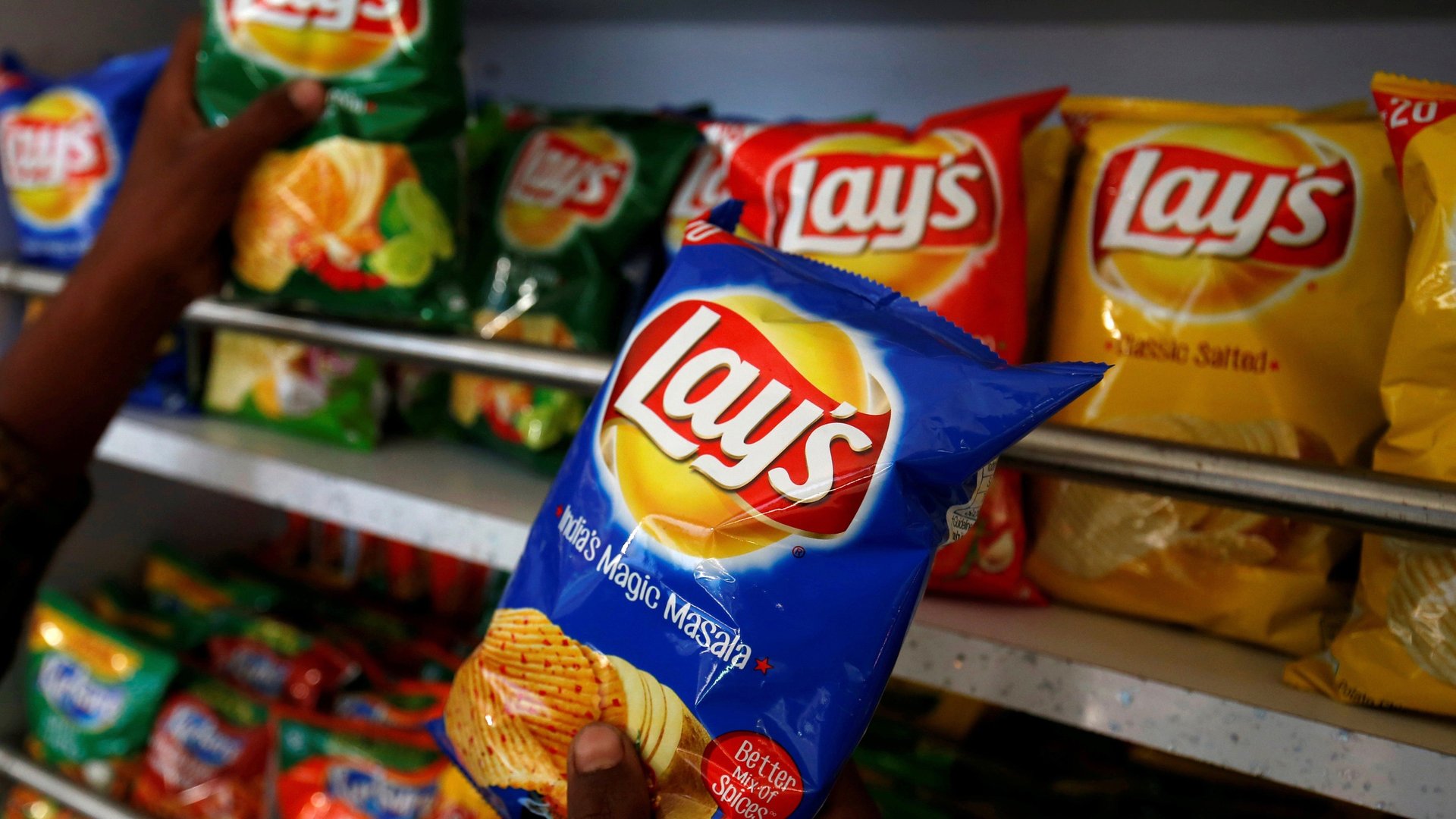Subsistence farmers in India beat PepsiCo’s legal team in a fight over potatoes
Sometimes David beats Goliath. And that’s what happened on May 3 in India, when PepsiCo withdrew its intellectual property lawsuits against subsistence farmers in Gujarat who were, it claimed, infringing on a potato patent.


Sometimes David beats Goliath. And that’s what happened on May 3 in India, when PepsiCo withdrew its intellectual property lawsuits against subsistence farmers in Gujarat who were, it claimed, infringing on a potato patent.
PepsiCo has created a special spud designed for Lay’s chips. The proprietary FC5 variety is meant to be lower in moisture than other types and thus superior for processing into potato chips. Only farmers who have a licensing agreement with the corporation are allowed to use these unique tubers, according to PepsiCo. But when the corporation sued farmers who it claimed were planting them without permission, it set off a firestorm of controversy in India.
Local growers’ associations argued that the farmers were not violating the law and accused PepsiCo of using its might to bully small cultivators. Indian agricultural laws protect the farmers’ rights to grow and sell registered crops, according to the All India Farmers’ Forum (AIFF), which called for a nationwide boycott of Lay’s and PepsiCo products. It demanded that PepsiCo withdraw its lawsuits and “apologize to the peasants of India.”
Now that the company has announced it’s dropping the claims, AIFF has declared “a significant victory in the struggle for protecting farmers’ seed freedoms.” The growers’ group attributed this victory to its boycott efforts and wants more clarity from the corporation on how it will approach seed freedom in the future. It demanded that PepsiCo “come clear and walk the talk or brace for more intense protests.”
PepsiCo, for its part, isn’t admitting any fault and hasn’t specified precisely why it’s not moving forward with the lawsuits, though it’s likely because the attempt at policing its intellectual property was a bigger headache than expected. A representative for the corporation told CBS, “After discussions with the government, the company has agreed to withdraw cases against farmers. We are relying on the said discussions to find a long-term and an amicable resolution of all issues around seed protection.”
The company, which generated about $65 billion in global food and beverage revenue in 2018, sought $143,000 from each farmer that allegedly infringed on its patents. The cultivators operate small farms, consisting of only a few acres, and would have been unable to pay if PepsiCo had been successful in its claims.
Now the AIFF says PepsiCo should pay the farmers “exemplary compensation” for having sued them to begin with. The organization wrote in a statement, “We also demand an unconditional apology from PepsiCo for such blatant violation of farmers’ seed freedoms.”